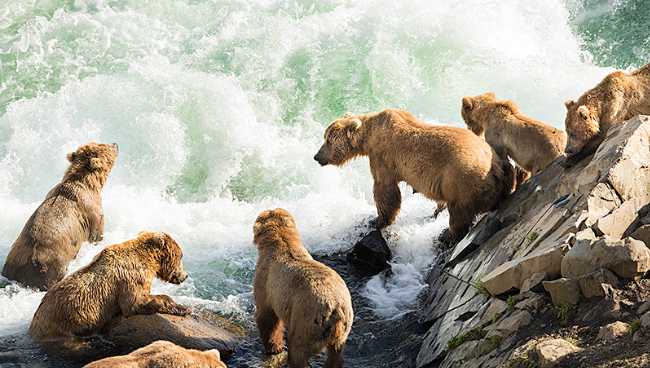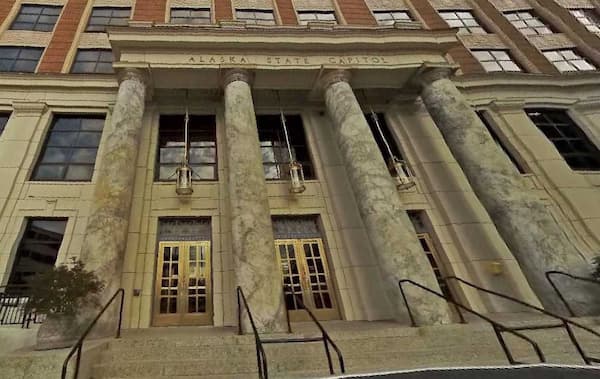
Washington, D.C. – Alaskan Congressman Don Young on Tuesday raised serious concerns to proposed federal rulemaking by the Department of Interior that could restrict development of oil and gas resources within Alaska. In a Subcommittee on Fisheries, Wildlife, Oceans and Insular Affairs oversight hearing, Congressman Young questioned the proposed rulemaking by the United States Fish and Wildlife Service (USFWS) that would hamper development of non-federal mineral rights within refuges, many of which are owned by Alaska Native Corporations or other private inholders.
“The rulemaking proposed by the Fish and Wildlife Service undermines the unique statutory system established in Alaska by both ANCSA and ANILCA, and greatly jeopardizes the process we have put in place to develop our oil and gas resources within refuges,” said Congressman Don Young. “These mineral rights belong entirely to the private land owners and the federal government should not be allowed to impose their burdensome regulations on these areas simply because this Administration says so; especially when the states, particularly Alaska, already have robust and effective regulatory regimes to ensure the safe and responsible development of these resources.”
Congressman Young’s questioning began with a simple inquiry to USFWS Assistant Director Steve Guertin on how his agency planned to navigate the regulatory differences established in Alaska under ANCSA and ANILCA, asking whether his agency planned to exclude Alaska from the rulemaking. Following an indication that Alaska would fall under this additional federal regulation, Congressman Young quickly demanded to know why the USFWS was pursuing these proposed changes and whether Alaskan groups and tribes had been consulted.
“Are you going to listen and give credit to those that live there and were guaranteed by Congress the right to develop their resources for their social and economic well-being, or are you going to listen to a bunch of jackasses from societies that don’t even live there,” Congressman Young said during the hearing.
As the questioning progressed, Congressman Young made his case as to why added USFWS roadblocks would deny Alaskans the ability to recover subsurface mineral rights provided by Congress, and how these proposed changes undermine the intent of the law.
“If I shut that door and lock it, you still have access if you have a key,” said Congressman Young. “But when I take the key away from you, you don’t have access. If you have regulations and stipulations that make it impossible for people who were guaranteed under ANCSA and ANILCA their rights to land because you’ve taken the key away from them, is that a right?… I sat on this Committee and watched us pass these laws, guaranteeing this right. I have agencies saying ‘this is not what Congress meant, this is what we’re going to do.’ I hope you take this downtown and explain my frustration…This is America, not a bunch of dictators, dictating through agencies that are taking away the rights of individuals, this Congress said they had.”
The Oversight Hearing on “Oil and Gas Activities within Our Nation’s Wildlife Refuge System” was called by Subcommittee Chairman John Fleming (R-LA) following the USFWS issuance of an Advanced Notice of Proposed Rulemaking on February 24, 2014. The rulemaking asked the public whether it believes there is a need for companies developing non-federal mineral rights in the Wildlife Refuge System to submit a proposed Plan of Operations to the federal government, and whether private land owners should be required to obtain federal permits, bonds, or pay fees to the federal government to access privately owned subsurface minerals rights from their lands. Among the list of witnesses to testify in opposition of the new USFWS regulations were Kip Knudson, Director of State and Federal Relations for the State of Alaska and Ethan Schutt, Senior Vice President for Land and Energy Development, Cook Inlet Region, Inc.
In many refuges, the federal government does not own the mineral rights; owners have the legal authority to develop the oil and gas resources. In 16 states across the nation, there are 1,679 active oil and gas well in 72 refuges, in addition to the 2,270 wells that have been closed, are inactive, plugged or shut-in within the system.
For a full webcast of the Subcommittee on Fisheries, Wildlife, Oceans and Insular Affairs Oversight Hearing, please click here.






